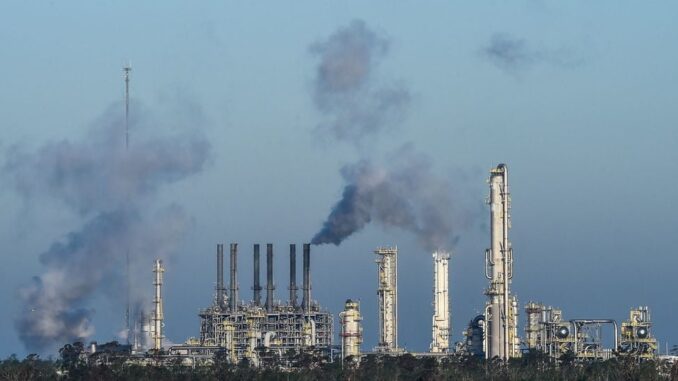
ENB Pub Note: David Blackmon’s articles on the Daily Caller, Forbes, and Substack are fantastic. We recommend subscribing to them all, and his Substack is HERE: https://blackmon.substack.com/.
The IEA also just released their 2023 coal report which is a stark opposite of their predictions of “Peak Oil.”. The full report on coal is available here:
The International Energy Agency, led by climate alarm advocate Fatih Birol, apparently feels it is safe to start the process of revising its forecasts for oil consumption growth now that the COP28 conference has ended. Right on cue, the agency seen by many as allowing an ideological bias to influence its reports upped its forecast for 2024 demand growth by 130,000 barrels per day less than 24 hours after the final COP28 agreement was made public.
No one should blame Birol and his staff for wanting to get a head start on this year’s revisions. The agency has made a habit of systematically underestimating global crude demand over the past decade, missing the mark on the low side in 10 of the past 12 years. Once the initial lowball estimate is issued, the standard practice involves quietly issuing a series of revisions across the following months that enable Birol to retain a semblance of having been “accurate” by the latter months of each year.
After setting the energy media a-twitter with an extra-low estimate for 2024 along with a preposterous projection that the world would achieve “peak demand” for crude by 2030 in a report published in September, the agency apparently felt a need to get cranking on the revisions as quickly as possible. This initial revision raises IEA’s forecast for crude demand growth to 1.1 million barrels per day for 2024, a bar many still think is absurdly low.
The agency also raised its growth estimate for 2023 again, this time by 90,000 barrels per day to 2.3 million for the full year. For its own part, OPEC estimates demand for its commodity is likely to rise by 2.25 million barrels per day during 2024, little changed from the growth of 2.46 Mbod for 2023. It seems likely that IEA will find the need to raise its own projections repeatedly during 2024 to be able to reach its annual claim of accuracy.
Of course, that could all change on a dime, and efforts to project crude supply and demand are always fraught with peril. (RELATED: DAVID BLACKMON: Oil Producers Save UN Climate Confab From Al Gore And John Kerry’s Extreme Plan)
For the industry itself, all bets are now off on the direction of oil prices and the level of supply growth they might produce. This situation has become fairly critical in recent months as the OPEC+ cartel has seen its ability to heavily influence price levels fading.
Much of the cartel’s lowering influence has been due to decisions and investments made in the United States. The global market has seen substantial new supplies come online from both Iran and Venezuela thanks to the Biden administration’s decisions to ignore or revoke US sanctions, allowing more oil onto the market to help stop rising gasoline prices. Iranian oil production alone has risen by about 600,000 barrels per day during 2023.
In addition, US domestic oil production grew by 1.1 million barrels per day between December 2022 and September 2023, according to the US Energy Information Agency (EIA). That increase becomes even more impressive when one considers it happened during period in which the Enverus count of active drilling rigs fell by 22%. The industry’s ability to wring higher production from wells through advancing technology, improved drilling techniques, and more efficient processes continues to frustrate its skeptics and critics.
In its December oil market report, OPEC projects global crude supply to grow by 1.8 Mbod, with the US accounting for 70% of that expansion. This leaves little room for growth for Saudi Arabia and other key OPEC member nations, who have cut back substantially on their own national exports to maintain somewhat stable prices over the past several years. Saudi Arabia has borne the brunt of those export cuts, and is now producing several million barrels per day less than its full capacity.
It is important to note that US production, especially in the high-cost shale plays that have come to dominate domestic supply growth in recent years, is highly sensitive to shifting commodity prices. As the industry witnessed the hard way in 2014, a decision by the Saudis to end production restraint can quickly send prices crashing and throw the industry into yet another bust cycle.
Efforts to project where this risky business will go always has been and remains a fool’s game.
Source: DailyCaller – David Blackmon is an energy writer and consultant based in Texas. He spent 40 years in the oil and gas business, where he specialized in public policy and communications.
ENB Top News
ENB
Energy Dashboard
ENB Podcast
ENB Substack



